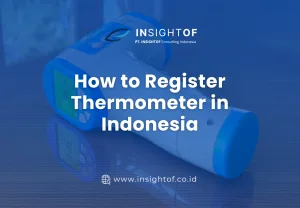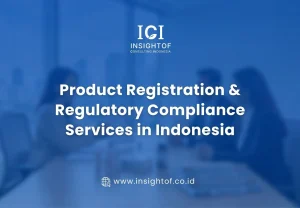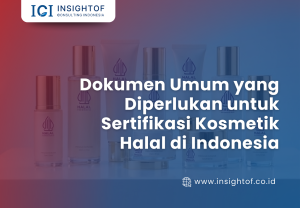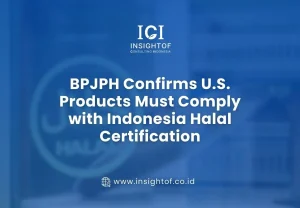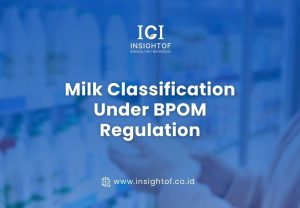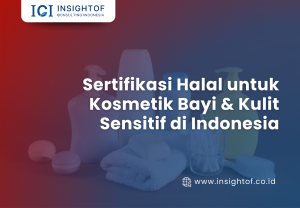Medical Mask as a Medical Device
The demand and sales of medical masks have significantly increased since the COVID-19 pandemic, not only in hospitals and clinics but also in the general market for everyday protection. What used to be mainly medical or surgical equipment is now a widely used personal protective item across Indonesia and globally.
A medical mask, also known as a surgical mask, is a non-implant medical device used to cover the nose and mouth to reduce the transmission of infectious agents. It has various applications, including:
- Protecting healthcare workers and patients from cross-contamination.
- Preventing the spread of respiratory infections.
- Providing barrier protection in both medical facilities and daily public use.
In Indonesia, medical device classifications categorize medical masks as:
- Category: General Hospital and Personal Equipment / General Surgery and Plastic Surgery Equipment
- Classification: Non-electromedical, Non-sterile, Disposable
- Risk Class: Class 2B (moderate risk)
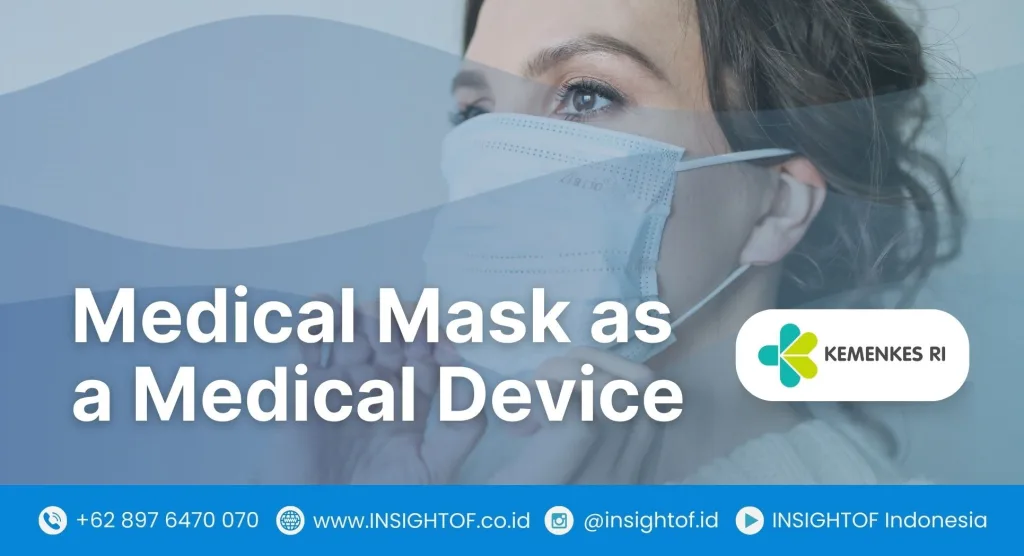
Why Medical Masks Are Classified as Class 2B
Medical masks are considered moderate risk devices because:
- They are used directly on patients and healthcare workers in critical settings such as hospitals and surgeries.
- They provide barrier protection against potentially infectious biological agents (bacteria, viruses, and body fluids).
- Failure or poor quality of the product could lead to serious consequences, including infection spread or increased risk of disease transmission.
- While they are non-invasive and non-electromedical, the level of protection they provide is critical, especially during medical procedures.
Different Categories in Kemenkes Registration
In practice, medical masks registered under the Ministry of Health’s medical device database (Regalkes) may appear in different subcategories, depending on the manufacturer and intended use:
- General Hospital and Personal Equipment (Peralatan Rumah Sakit Umum dan Perorangan) – typically for general-use disposable medical masks, especially the ones sold in the open market for everyday protection.
- General Surgery and Plastic Surgery Equipment (Peralatan Bedah Umum dan Bedah Plastik) – specifically for surgical masks intended for operating room and clinical use.
This distinction explains why one product type (mask) can be seen under different registration categories.
Mandatory Halal Certification in Indonesia
Indonesia’s Law No. 33 of 2014 on Halal Product Assurance, along with Presidential Regulation No. 6 of 2023, now requires all medical devices marketed in the country to comply with halal certification requirements eventually.
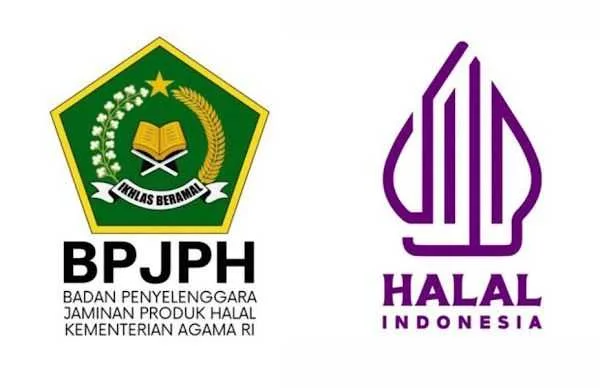
This implementation will be rolled out in stages:
| Medical Device Class | Mandatory Halal Certification Date |
| Class A | October 17, 2026 |
| Class B | October 17, 2029 |
| Class C | October 17, 2034 |
| Class D | October 17, 2039 |
Halal Requirements for Medical Masks
According to Minister of Health Regulation No. 3 of 2024, halal certification applies to medical devices that may contain animal-derived materials.
- If the mask uses animal-based materials (such as collagen, gelatin in earloop adhesives, or filter coatings), those must be sourced from halal animals, slaughtered according to Islamic law.
- If the mask is made entirely of synthetic materials (polypropylene, polyester, melt-blown fabric, synthetic rubber for earloops), the halal process is simpler but still mandatory.
- If any component is non-halal (e.g., pig-derived gelatin in glue), the product can still be sold but must be labeled “non-halal” or disclose the material origin on the label.

Since medical masks are classified as Class 2B, halal certification will be mandatory starting October 17, 2029.
Download Regulation Here:
Government Regulation No. 39 Year of 2021
Peraturan Presiden (Perpres) Nomor 6 Tahun 2023
Halal Certification Process
Manufacturers and distributors of knee support must follow several steps to get certified.
- Material Identification: First, ensure that all raw materials, adhesives, and coatings do not contain haram (prohibited) substances.
- Production Audit: Next, you need to verify that your production facilities are free from contamination with non-halal materials.
- Documentation & Halal Assurance System (SJPH): You must create and maintain documentation, including a halal policy, ingredient traceability, and compliance records.
- Submission to BPJPH: The certification process itself is managed by the Halal Product Assurance Agency (BPJPH). A Halal Inspection Body (LPH) conducts the audit, and the final halal ruling comes from MUI.
- Halal Labeling: Finally, once certified, you must place the halal logo on the product packaging.

Impact on Manufacturers & Distributors
Producers and importers of medical masks must prepare halal documentation before October 17, 2029. After this date, only products with halal certification or a clear “non-halal” label may be marketed.
Given Indonesia’s majority Muslim population, halal certification will significantly increase consumer trust and boost competitiveness in the healthcare market.
Conclusion
Halal certification will be mandatory for medical masks (Class 2B medical devices) starting October 17, 2029. Manufacturers and distributors should begin preparing now, especially if products contain animal-derived materials.
Beyond regulatory compliance, halal certification offers a valuable market opportunity by enhancing consumer confidence and strengthening access to Indonesia’s healthcare sector.
INSIGHTOF Halal Certification Services
At INSIGHTOF, we support medical device, cosmetic, and food & beverage companies in navigating Indonesia’s halal certification and regulatory landscape with confidence. Our services include:
- Halal Certification Assistance → from BPJPH application to MUI fatwa process.
- Medical Device Registration → obtaining product approval from the Indonesian Ministry of Health.
- Regulatory Consulting → end-to-end guidance for manufacturers, importers, and distributors.
Contact INSIGHTOF today for a free consultation. Our expert team will help ensure your products meet halal certification requirements and achieve a smooth, compliant entry into the Indonesian market.
Do you need assistance registering your product in Indonesia?
Contact us today to start your registration process.
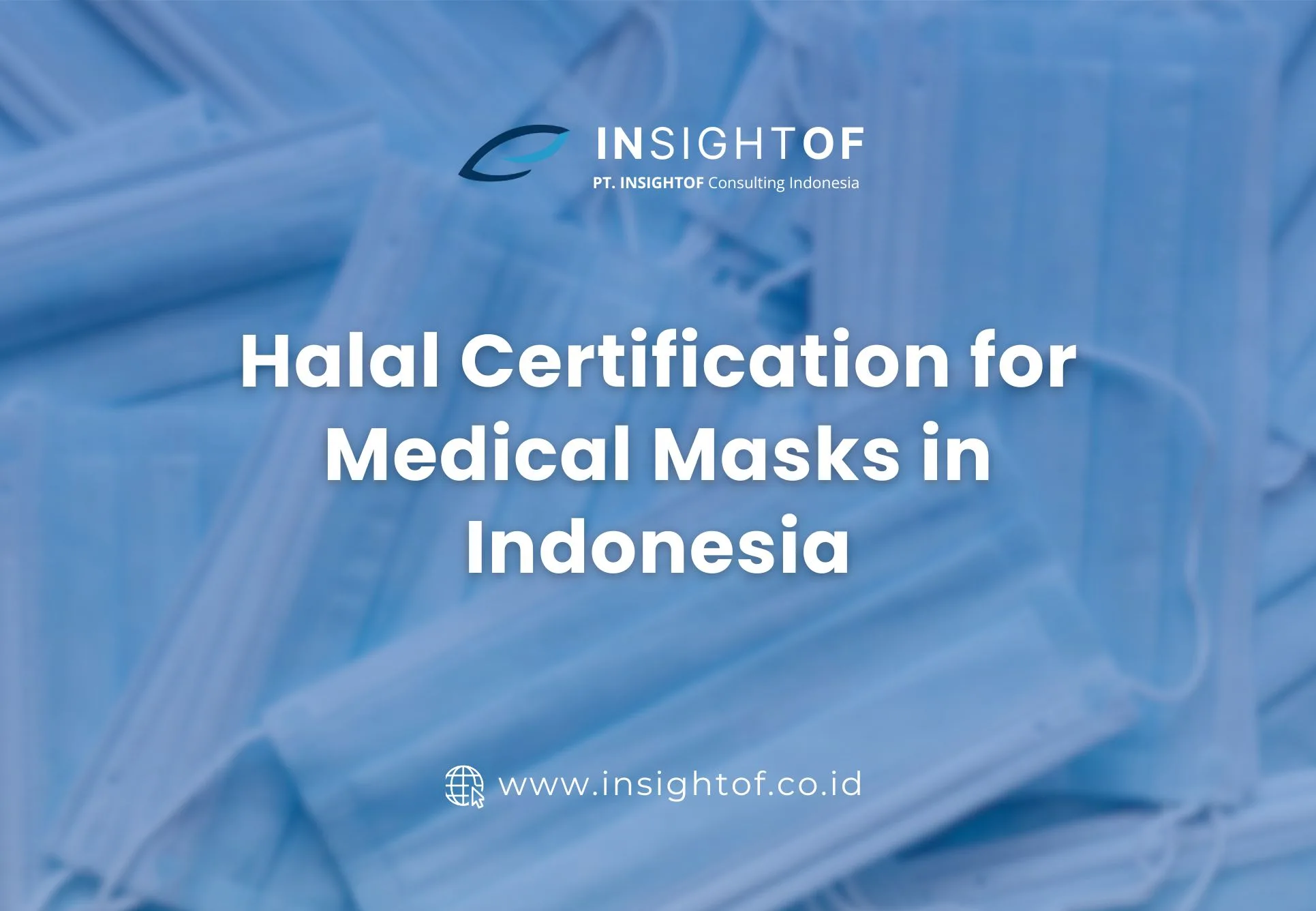

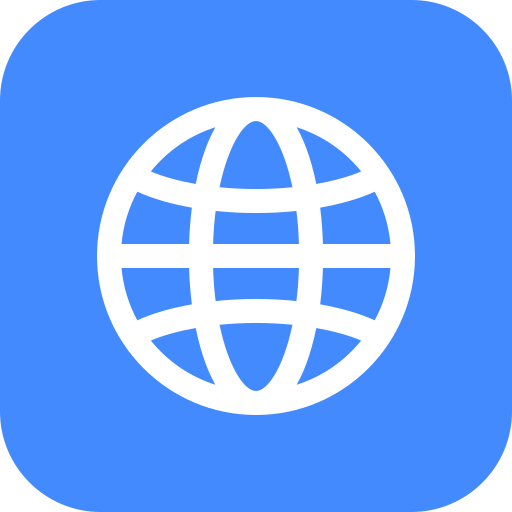
.svg/240px-YouTube_social_red_squircle_(2017).svg.png)

